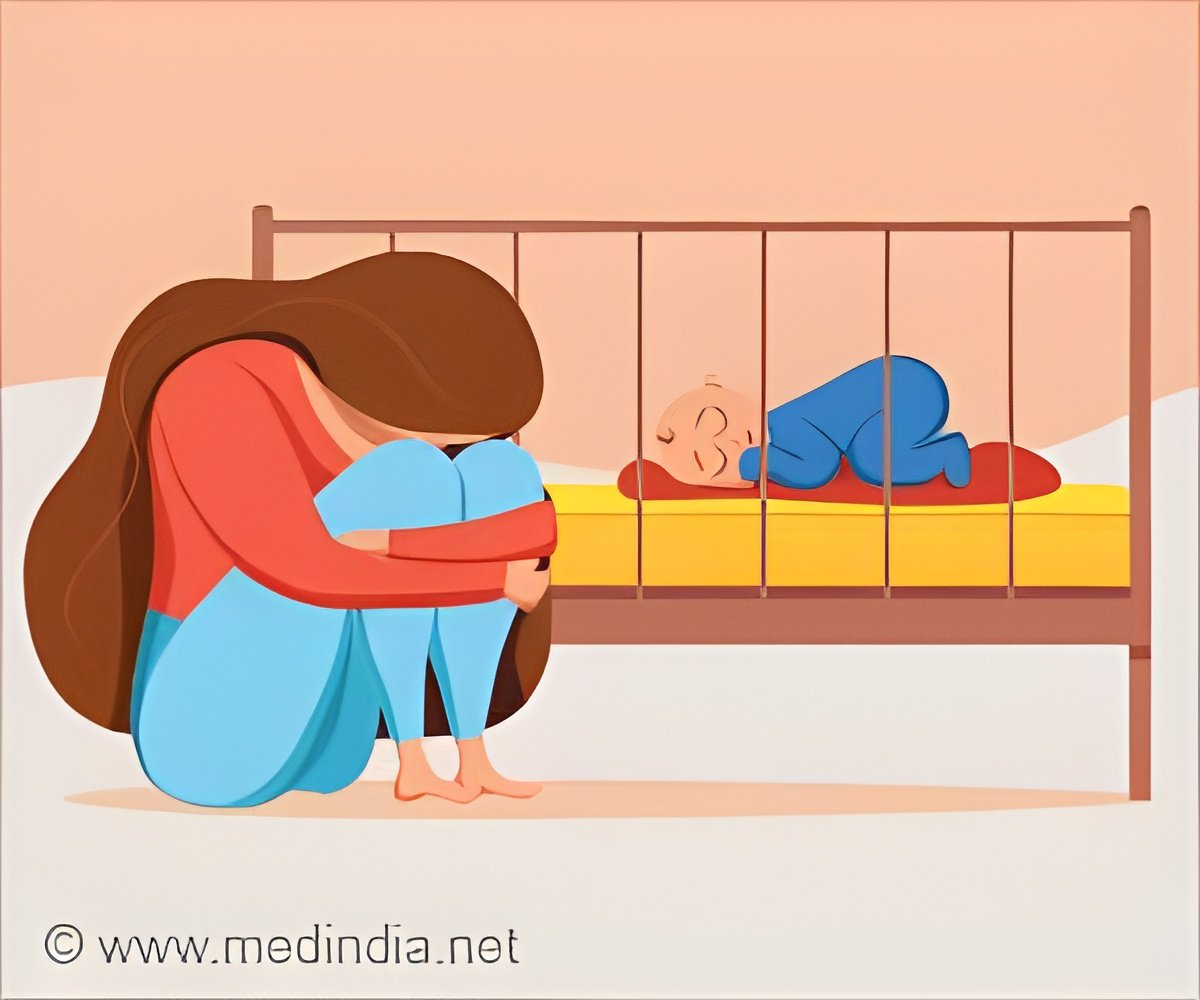Discover how brain activity in pregnant women is linked to their ability to regulate emotions and the risk of postpartum depression.

‘About 80% of women experience "#baby_blues" after giving #birth, but approximately 1 in 7 develop #postpartum_depression, which can affect #mother-infant bonding. #medindia’





The study aims to identify pregnant women who are at higher risk of postpartum depression by examining this brain activity and assessing how they manage their emotions (1✔ ✔Trusted SourceNeural emotion regulation during pregnancy - a fMRI study investigating a transdiagnostic mental health factor in healthy first-time pregnant women
Go to source).
This study is the first to compare the brain activity of pregnant women with that of non-pregnant women. The ability to regulate emotions is crucial for mental well-being, and this connection is the focus of our research.
The researchers took 15 healthy pregnant women with very high estrogen levels (due to the pregnancy). The pregnant women were between 5 and 6 months into their first pregnancy. These women were compared with 32 non-pregnant women, who had naturally fluctuating estrogen levels, as occurs during the menstrual cycle.
Each woman was put in an MRI scanner and shown upsetting/disturbing pictures. They were then asked to regulate their emotional state using cognitive reappraisal, which is a technique where the person aims to modify their emotional state by changing their thoughts and trying to reinterpret the situation.
Amygdala Activity and Effect on Emotional Control in Pregnant Women
Presenter Ms Franziska Weinmar (University of Tübingen, Germany) added: We questioned all the women in the study on how they dealt with negative emotions and found that the pregnant women in our study reported that they seldom tried to change their emotional perspective by using cognitive reappraisal, in contrast to the non-pregnant women.Advertisement
Both pregnant and non-pregnant women are equally capable of managing emotions by deliberately trying to reinterpret a situation, but for pregnant women, it seems to be more difficult to take this step towards consciously controlling these negative emotions, although they may deal with them in other ways.
Advertisement
*[The amygdala is a small almond-shaped brain region near the base of the brain, which deals with learning, memory and emotions and is also thought to be involved in maternal behaviour and caregiving.]
Role of Brain Activity in Postpartum Mental Health
We need to be cautious in interpreting this - this is a small sample, and we are the first to undertake this work. However, if larger studies confirm higher activity in the amygdala in women at risk of postpartum depression, we could assess and specifically target these women during this vulnerable phase - for example, by training them in emotion regulation skills. This may be one approach to cope with the baby blues.Commenting, Dr. Susana Carmona (Gregorio Marañón Hospital, Madrid) said
'Studies like this are essential for understanding one of the most extreme physiological processes a human can experience: gestation. It’s astonishing how little we still know. Recently, the FDA approved the first treatment for postpartum depression'.
However, we still have a long way to go in characterizing what happens in the brain during pregnancy, identifying biomarkers that can indicate the risk of developing perinatal mental disorders, and designing strategies to prevent mother and infant suffering during the delicate and critical peripartum period.
Reference:
- Neural emotion regulation during pregnancy – a fMRI study investigating a transdiagnostic mental health factor in healthy first-time pregnant women- (https:www.medrxiv.org/content/10.1101/2024.09.13.24313410v1)
Source-Eurekalert












